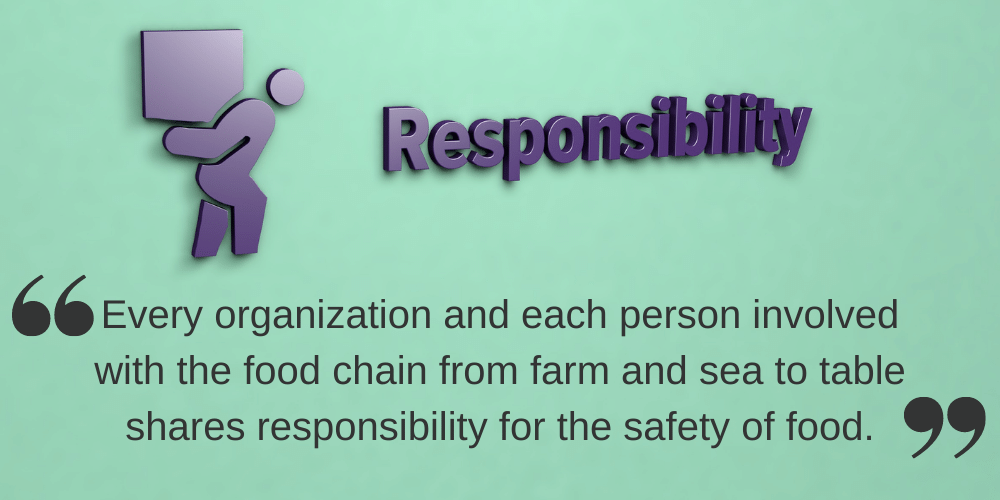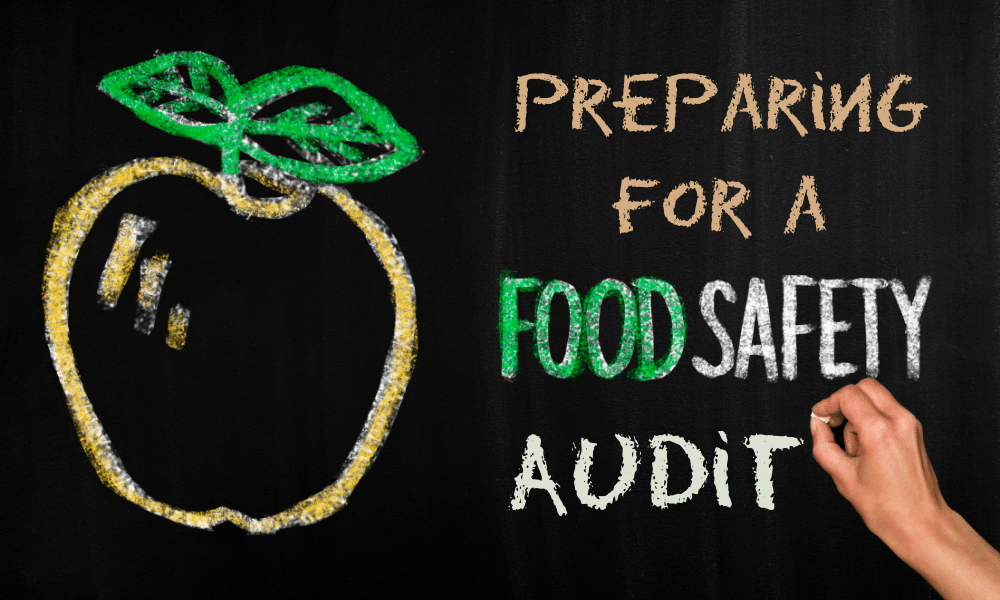How to Prepare for a Food Safety Audit
The responsibility for food safety falls to everyone working anywhere on the continuum within the food industry. Safe and nutritious food is important to each of us, so it is incumbent on each person to assist in compliance with food safety laws and regulations.
Producers within the food industry invest significant amounts of time and money to minimize the risk of exposing consumers to contaminated food. These efforts to ensure safe foods affect every aspect of the supply chain.
One tool aiding organizations in their efforts to minimize the risk of foodborne illnesses is a food safety management system. A successful food safety management system ensures that an organization is implementing an unbiased, validated, and controlled manufacturing process.
An added benefit to the organization is that, through compliance with food safety standards, a successful food safety management system enhances brand reputation through the production of high-quality, safe products.
An Ounce Of Prevention
Contamination of food at any stage, from production to consumption, can produce bacteria, viruses, parasites, chemical agents, and toxins, which eventually cause foodborne diseases. However, with the passage of the Food Safety Modernization Act (FSMA) in 2011, food safety and quality assurance processes have undergone substantial changes and improvements.
The focus has evolved, placing more emphasis on a proactive approach to preventing contamination, as opposed to acting only after a problem has been uncovered. Adopting this proactive approach with an FSMA compliant food safety plan minimizes the potential of expensive liability and recall issues.

Everyone shares the responsibility
You don’t have to be food safety certified to be a valuable member of the team. Every organization and each person involved with the food chain from farm and sea to table shares responsibility for the safety of food. This includes producers, processors, shippers, retailers, food preparers, and ultimately, consumers.
It is widely accepted by the scientific community that the use of Hazard Analysis Critical Control Point (HACCP) programs in food production, processing, distribution, and preparation is the best known approach to enhancing the safety of foods. Utilizing a HACCP system for ensuring food safety within that chain begins with a thorough analysis of, and control of, potential biological, chemical, and physical hazards in the production, manufacture, distribution, and consumption of all food products.
But…Why Do We Need Audits?
Food safety audits are a key component of maintaining food safety systems and certification and as such help demonstrate that your business is following food safety guidelines and laws. These audits, designed to create transparency in the supply chain, enhance food safety while focusing on continuous improvement in the food production industry.
Advantages of a food safety audit
Every food-related organization is required by law to participate. However, even though legally mandated, there are several benefits of a food audit to your business. An audit can:
- Help your organization improve its management system, including reevaluating priorities
- Provide a clearer direction for achieving your business goals
- Provide an inventory of any incidents and identify problems that need to be addressed for better efficiency
- Help your business meet regulatory and legal requirements
- Provide an analysis of evaluations from suppliers as well as customer feedback/requirements
Preparing for a food safety audit takes work
Beginning with the process of program development, implementation, and verification, preparation for an audit is no small feat. Your team, from management down, must learn to work in a new or different way, including documenting actions taken, obtaining additional training, and increasing the level of communication between departments.
Ultimately, the goal includes working in collaboration, following defined processes, and enhancing understanding of requirements at all levels. This systematic process, when followed, helps to build a culture of food safety, thereby ensuring that your team is audit-ready…every day.
The question becomes, then, if audits are so important to the food supply chain…why do some organizations fail or not do as well as anticipated? There are many factors that contribute, i.e., lack of management commitment, inadequate resources, and/or inexperience of your team. One strategy for correcting any, or all of these factors is to shift to thinking more like an auditor and improving your preparation skills.

FOOD SAFETY AUDIT PREPARATION CHECKLIST
Food safety is a vital public health precaution. A successful food safety audit provides proof that your organization is consistently compliant with legal standards. The following food audit checklist can help you to prepare for your next audit:
- Conduct your own internal audit a few months prior to the actual audit, reviewing details such as:
- Making sure your facility is clean and neat, including all office and storage areas
- Placing clearly labeled items in their correct location
- Allowing sufficient room between storage items and any walls for pest control as well as cleaning
- Utilizing a third-party to conduct a “trial” audit to identify potential issues possibly overlooked
- Work with staff in preparation for the audit by:
- Reviewing each employee’s individual responsibilities in relation to the audit
- Educating employees on HACCP principles and application guidelines
- Discussing with management-level staff members all-important key terms, i.e., the difference between verification and validation and corrective action
- Employing practice runs to make sure everyone is comfortable with their role and responsibility
- Preparing staff to be able to respond to inquiries appropriately
- Complete all necessary documentation before the auditor arrives
- Have important documentation readily available
- Correct/improve any pre-identified concerns
- Make sure all senior staff have both initial and final meetings with auditors on their calendar and are committed to being present
- Request the auditor’s credentials
- Have a plan in place to address any non-conformance issues found
- Encourage everyone, so that all involved have a positive attitude
“Food safety involves everybody in the food chain.” – Author: Mike Johanns
In summary
Audits are a crucial part of maintaining food safety standards in your organization. You can ensure a culture committed to food safety by enforcing the standards of proper reporting, monitoring critical control points, and implementing corrective actions related to food safety requirements.
By doing so, you and your organization will be better prepared to experience a successful food safety audit. And most importantly, you will have laid the groundwork for maintaining an organization committed to safe and healthy food for your customers.

